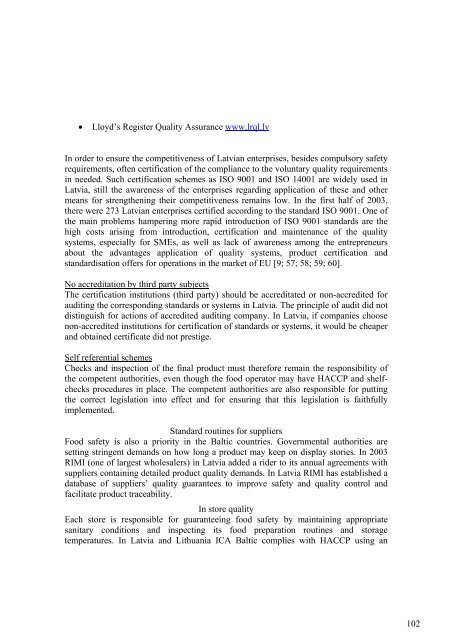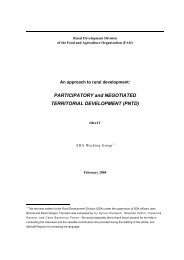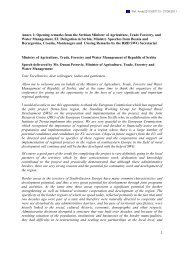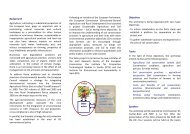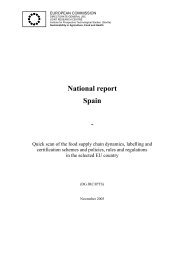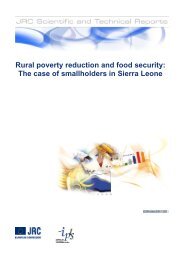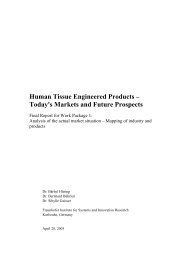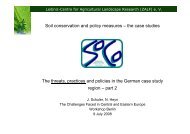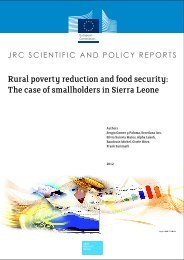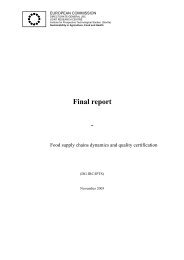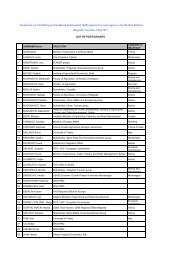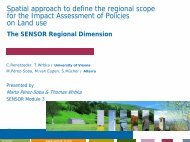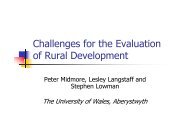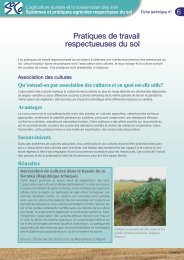(DG JRC/IPTS) - agrilife - Europa
(DG JRC/IPTS) - agrilife - Europa
(DG JRC/IPTS) - agrilife - Europa
Create successful ePaper yourself
Turn your PDF publications into a flip-book with our unique Google optimized e-Paper software.
• Lloyd’s Register Quality Assurance www.lrql.lv<br />
In order to ensure the competitiveness of Latvian enterprises, besides compulsory safety<br />
requirements, often certification of the compliance to the voluntary quality requirements<br />
in needed. Such certification schemes as ISO 9001 and ISO 14001 are widely used in<br />
Latvia, still the awareness of the enterprises regarding application of these and other<br />
means for strengthening their competitiveness remains low. In the first half of 2003,<br />
there were 273 Latvian enterprises certified according to the standard ISO 9001. One of<br />
the main problems hampering more rapid introduction of ISO 9001 standards are the<br />
high costs arising from introduction, certification and maintenance of the quality<br />
systems, especially for SMEs, as well as lack of awareness among the entrepreneurs<br />
about the advantages application of quality systems, product certification and<br />
standardisation offers for operations in the market of EU [9; 57; 58; 59; 60].<br />
No accreditation by third party subjects<br />
The certification institutions (third party) should be accreditated or non-accredited for<br />
auditing the corresponding standards or systems in Latvia. The principle of audit did not<br />
distinguish for actions of accredited auditing company. In Latvia, if companies choose<br />
non-accredited institutions for certification of standards or systems, it would be cheaper<br />
and obtained certificate did not prestige.<br />
Self referential schemes<br />
Checks and inspection of the final product must therefore remain the responsibility of<br />
the competent authorities, even though the food operator may have HACCP and shelfchecks<br />
procedures in place. The competent authorities are also responsible for putting<br />
the correct legislation into effect and for ensuring that this legislation is faithfully<br />
implemented.<br />
Standard routines for suppliers<br />
Food safety is also a priority in the Baltic countries. Governmental authorities are<br />
setting stringent demands on how long a product may keep on display stories. In 2003<br />
RIMI (one of largest wholesalers) in Latvia added a rider to its annual agreements with<br />
suppliers containing detailed product quality demands. In Latvia RIMI has established a<br />
database of suppliers’ quality guarantees to improve safety and quality control and<br />
facilitate product traceability.<br />
In store quality<br />
Each store is responsible for guaranteeing food safety by maintaining appropriate<br />
sanitary conditions and inspecting its food preparation routines and storage<br />
temperatures. In Latvia and Lithuania ICA Baltic complies with HACCP using an<br />
102


